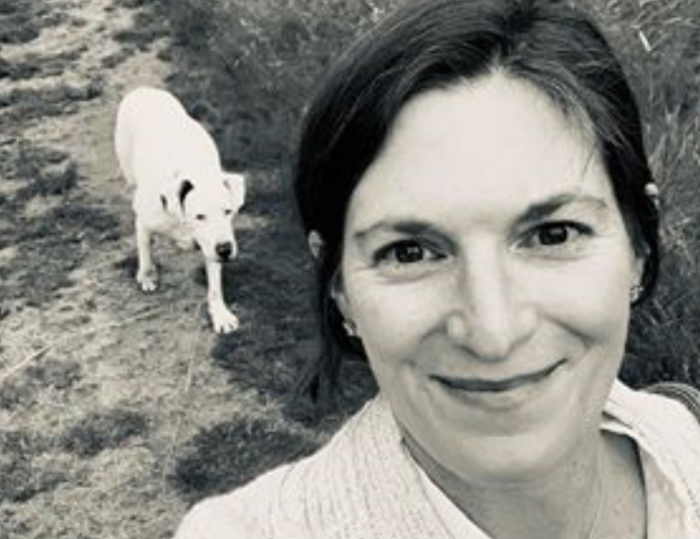It was about 12 years ago now when I found myself sitting in my clinical supervisor’s office, struggling.
I was halfway through my doctoral program in clinical psychology, my sister’s violent murder in the recent, blindingly dark past, and I was buried beneath the wreckage of my crumbling marriage, toddler in tow, and two more on the way.
I meant it as a passive, almost rhetorical question to bridge one awkward moment to the next, sitting in his office, crying, and coming unglued.
Foregoing any compassionate therapeutic pause, he simply replied, “Many little decisions.”
Come again? I was gutturally punched—stunned, speechless. You mean, I created this life? This chaos? I am the maestro of this deafening and incompatible cacophony?
My wise elder succinctly said what I came to realize many years later. I had been living on autopilot for most of my life, creating patterns of preferences from all my big and less significant life decisions. His compassionate words jolted me out of my decision-making fugue state.
Many years of therapy and meditation and yoga practice later, I came to accept that although life will throw at me many curve balls over which I have absolutely no control, I am responsible for all of my life decisions, whether it be which non-dairy creamer to put in my coffee, or to the more significant ones around parenting, my words spoken, and my body’s actions.
And, I learned it’s not so much the decisions I have made but whether I have made them with integrity.
The culmination of our life decisions resides in our internal world, how we feel in our body, mind, and soul, and not what we have accumulated externally and materialistically.
According to Buddhist psychology, wise action requires three considerations:
Our intention behind the decision we make: What is driving us down one path instead of another?
Our ability to carry out our decision: Do we have the skills, resources, and wisdom to follow through?
Our reflection on the immediate results of our decision: What can we learn from the results of our decision so that we may adjust and fine-tune our skills for future decision making?
And here we all are now. Perpetually drenched in the COVID-19 trauma of helplessness, lack of control, and decision-making fatigue. We are chronically fatigued by the daily small and significant life decisions we need to make as we consider the health and welfare of ourselves, our families, and our country.
A recent article in the Atlantic, Our Minds Aren’t Equipped for This Kind of Reopening, discusses the difference between “making” bad choices versus “having” bad choices, the latter of which comes from decisions that require us to use moral reasoning and risk assessment in situations, such as COVID, that are uncertain and uncontrollable and laden with our biases and judgments.
So how do we maintain a sense of presence and mindfulness with our life decisions in the midst of this constant emotional turbulence?
Buddhist educator Oren Jay Sofer describes five stages that lead to the “flow of decision making.”
Stage 1: Awareness.
There is freedom in awareness because it presents us with choices and a sense of free will. When we are reactive, we are in a trance, on autopilot, like I was, which can feel a lot like having no control over ourselves and the direction of our lives.
And with awareness come potential pitfalls to our decision making, such as aligning with a false sense of obligation to others, or our “identity,” or the various roles we play, hats we wear.
We may also succumb to emotional reasoning. There is a saying, “Don’t make promises when happy, don’t speak when angry, and don’t make decisions when sad.” We equate strong emotions with truth. We cling to the positive feelings, not wanting them to end. How often have we promised or tried to make future plans with someone as the curtain was lowering on a wonderful evening? Or, we make rash, reactive decisions to avoid feeling the pain of negative emotions.
We end up exerting a lot of energy to control, suppress, and hide from much of our daily lives. Consider we are deep divers swimming down into the depths of our souls, our truth. We must learn to swim beyond the turbulent waves of emotions and even further down, past the shiny distractions, until we get to the ocean floor of our soul where stillness, quiet, clarity, and truth surround us, comfort us, and bring us home within ourselves.
Stage 2: Exploration.
We contemplate all the factors of the choices. We explore our motivations and intentions and where the choices fit in. Many of us can be seduced into this stage and remain here. The delusional thrill of having “many” choices is attractive and can make it seem that our life is full and fulfilled, and then falsely rest in a state of inertia, when really, we are avoiding the fear of loss and disappointment that comes with deciding one choice over another.
Barry Schwartz’s revolutionary book, The Paradox of Choice, discovered that more choices lead to more depression because we are manipulated into believing one must be the most sublime, the most “right,” and make us the most “happy.” Think of the 100 boxes of cereal at the grocery store, the 10 types of apples, or 100-plus “interested people” in your online dating app queue. The elusive “right choice” deludes us into needing to feel a state of ecstasy, or something is wrong—we have failed and are to blame.
Stage 3: Moving toward confluence.
We start to lean toward one of the choices as it becomes a clearer path for us. This requires the ability to sit and listen to our innermost selves, beyond the emotional reasoning, down to the depths of our ocean floor soul. Beyond the “what is in it for me?” Beyond the short-term gratification. Beyond the ill will or anger toward another or something or using the choice to seek revenge or retaliation. Beyond the fear. The fear that keeps us from seeking one path because of loss of something on the other path. Beyond our societal/familial obligations, our roles and identities—the “what is expected of me” trap.
I see this mostly in my practice at different life stages. Young adults breaking away from their family of origin and figuring out their own life values and beliefs toward a sense of an autonomous identity, or middle-aged men and women who have lived in a certain role with expectations, or experiencing an “empty nest” without children and the demands of active “parenting,” or those with a secure job but with decreasing satisfaction.
Mindful decision-making helps us separate the habituated roles and expectations we have learned and guides us to go deeper into what is our true nature, our true purpose.
Stage 4: Carrying out the decision.
How skillful are we? Do we have the emotional resources to carry out the decision? Are we committed, and believe in our choice?
I had a client who was contemplating whether to look for another job. Together, we explored her intentions, motivations, and needs, and she came to realize that in this time of COVID-19, she did not have the emotional resources to actively research jobs, go on multiple interviews, and ultimately learn new protocols and procedures. She was able to re-commit to her current job until she felt more resilient.
Stage 5: Reflection.
As important as all these mindful stages are, this one gets the least attention and awareness. It gets overshadowed by expectation “let down” or disappointment, and then we reactively believe something is wrong or we are bad because we made a mistake.
My supervisor, who was a Buddhist Psychologist, suggested that we observe our decision-making as if were a research case study, N=1. We have our hypothesis (our intentional decision), we run the experiment and collect data (carrying out, committing to the decision), and then we review and discuss results (reflections of the decision).
Often with my clients, we reflect on their internal bodily sensations after the behavior that is reactive and negative versus other times when they sacredly pause, breathe, collect, and communicate with more compassion and patience. When we regularly notice the contrasting embodied feelings between reacting impulsively and responding wisely, our true nature will be the choice that promotes more peace within ourselves and with others.
And if this flow seems too much to contemplate right now, the Buddha advised his son to ask himself the following three questions when making a decision:
Is it for my welfare?
Is it for others’ welfare?
Will it lead to peace?
If we can answer “yes” to all three, then it is a wise decision.
~
Once in a Lifetime by Talking Heads
And you may find yourself
Living in a shotgun shack
And you may find yourself
In another part of the world
And you may find yourself
Behind the wheel of a large automobile
And you may find yourself in a beautiful house
With a beautiful wife
And you may ask yourself, well
How did I get here?
Letting the days go by, let the water hold me down
Letting the days go by, water flowing underground
Into the blue again after the money’s gone
Once in a lifetime, water flowing underground…
~
~









Read 36 comments and reply